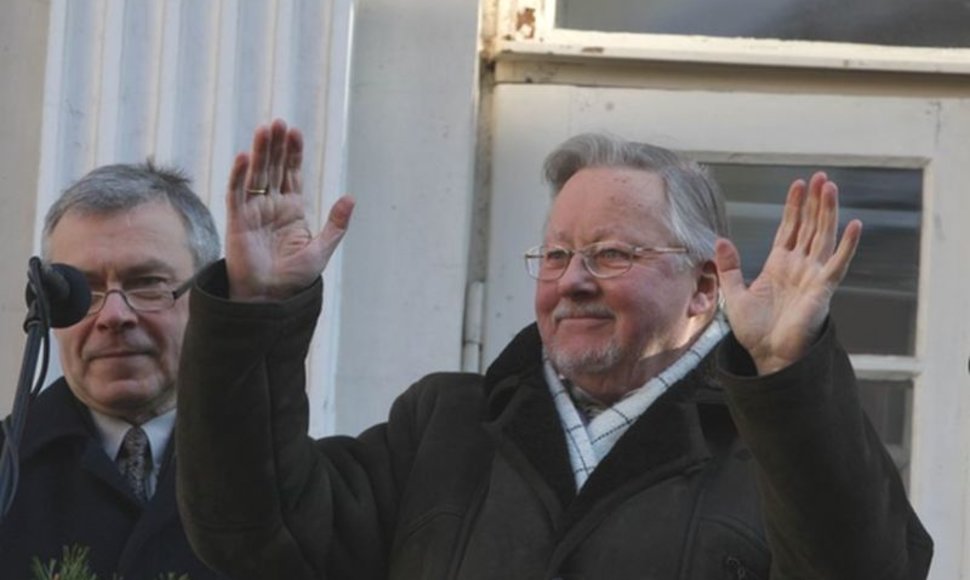"I don’t think (the results of the referendum – BNS) should have any negative influence on Lithuania. I believe, on the contrary, the results show that evil goals don't win," Landsbergis told BNS on Sunday.
In his words, people speaking in the name of ethnic minorities in Lithuania do not reflect their real situation, instead demonstrating "the influence of foreign politicians."
"The relations (between Lithuanians and ethnic minorities in Lithuania – BNS) are not problematic, if we omit instigation. Of course, if the referendum in Latvia had been successful, instigators here would have raised their heads. And now, since it failed and by such a huge landslide, so they should cool down. Unless they don't have brains at all," the Lithuanian MEP said.
Landsbergis believes the referendum demonstrated the unity of Latvian people.
"Initiators either in Moscow or in Riga did not expect that at all. The results seem to be contrary to what had been expected. We see unity between ethnic Latvians and citizens loyal to Latvia, instead of the expected division into two camps where Latvians and non-Latvians would have been put opposite to each other," Landsbergis told BNS.
He also added that one of the aims of the referendum was to present Latvian Russians as a fifth column that wants to harm Latvian State, humiliate Latvians and undermine their belief in the future.
"They seem to have failed to draw this picture of a fifth-column, as honest and conscious Russian-speaking citizens objected to that," Landsbergis concluded.
Parliament Speaker Irena Degutienė has congratulated Latvian citizens "who protected their constitutional right to the Latvian state language" in a referendum on Saturday.
In a statement issued by the speaker's secretariat, Degutienė also highlighted "the uniqueness of the brotherly Latvian language and its importance in preserving the whole Latvian national identity."
"Latvia's society made a firm and final decision that the validation of the Latvian language, as the state language in Latvia, is the only way to a harmonious society and preservation of the uniqueness of the Latvian nation," Degutienė said in a letter to her Latvian counterpart Solvita Aboltina.
Lithuanian Minister of Foreign Affairs Audronius Ažubalis said on Sunday the Saturday referendum in Latvia, in which almost 80 percent of voters voted against the initiative, was an important achievement for Latvia's statehood.
In his words, Latvian citizens defended the state language and continuity of the Baltic culture.
"It's an achievement of Latvia's statehood which Latvia can justly be proud of. And we, Lithuanians, and all other nations have to respect that," Ažubalis was quoted as saying in a statement by the Ministry of Foreign Affairs.
According to the minister, the Baltic states will continue respecting and cherishing cultural diversity but that does not give anybody the right to undermine a state language – the foundation of a state and nation.
The Ministry of Foreign Affairs also added that the referendum had demonstrated sustainable compliance with democratic principles and respect for citizens' constitutional rights and freedoms in Latvia.












